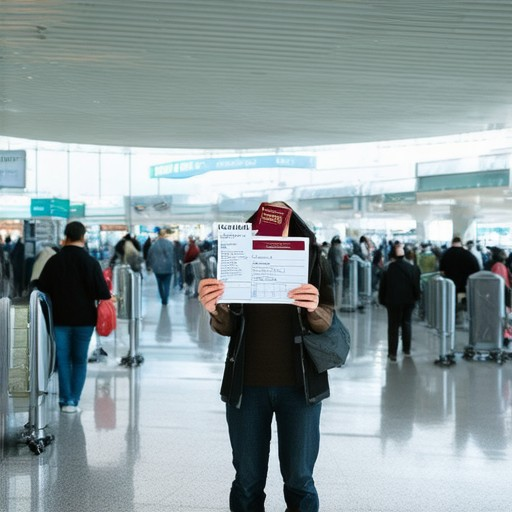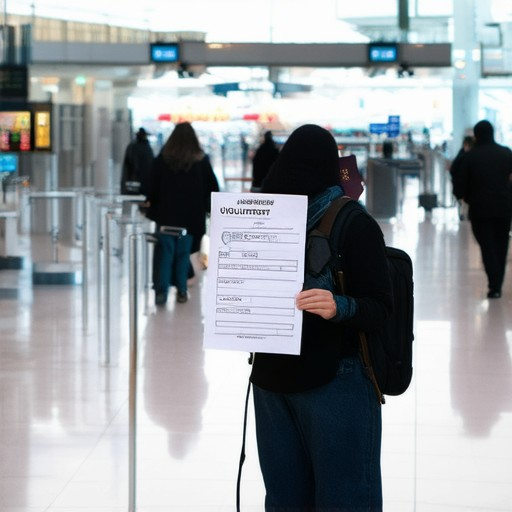Exploring the globe while contributing to meaningful causes sounds like an ideal way to travel, but is volunteering while traveling truly worth it? For many, the allure of combining adventure with purpose is hard to resist, offering a unique perspective on destinations and cultures. This article delves into the ins and outs of volunteer travel, examining how it works, the opportunities available, and whether it offers more than just a free trip. From understanding the term itself to discovering free international volunteer programs, we’ll explore how you can embark on this rewarding journey. Whether you’re seeking personal growth, cultural immersion, or simply wanting to give back, this guide provides insights to help you decide if volunteering while traveling aligns with your aspirations. Let’s uncover the benefits and challenges, and determine if it’s a worthwhile endeavor for curious globetrotters.

How Can I Volunteer While Traveling?
Volunteering while traveling offers a unique opportunity to give back to the communities you visit and gain valuable life experience. Here’s a structured approach to help you get started:
1. Identify Your Interests and Skills
Consider your hobbies, skills, and interests to align them with volunteer opportunities. Whether it’s construction, education, animal care, or environmental conservation, matching your skills can enhance your impact.
2. Explore Reputable Organizations
- Habitat for Humanity : Engage in building affordable housing globally. They offer varied durations, including short-term projects.
- Peace Corps : Ideal for those committed to long-term international service, though typically requires a longer commitment.
- All Hands and Hearts : Focuses on disaster recovery and reconstruction, offering flexible project durations.
- Workaway : Connect with locals through diverse projects, providing cultural exchange opportunities while contributing to local initiatives.
3. Utilize Volunteer Travel Agencies
These agencies facilitate volunteer trips, often including logistics support. Research agencies like Volunteer Abroad for reliable and well-reviewed programs.
4. Participate in Cultural Exchange Programs
Engage in language exchanges or cultural immersion programs that combine learning with community service. Platforms like Cultural Exchange can connect you with opportunities.
5. Collaborate with Local NGOs
Contact local non-profits in your destination country through online platforms or expat communities to find personalized volunteer opportunities aligned with your goals.
6. Teach or Coach
Share your knowledge by teaching English or other subjects. Platforms like TeachAway connect volunteers with schools overseas.
7. Consider Wildlife Conservation
Volunteer with wildlife conservation efforts through organizations like Wildlife Conservation Society , focusing on projects that suit your interests and experience level.
8. Prioritize Safety and Security
Research destinations and organizations with strong safety records. Read testimonials and reviews to gauge genuine experiences and ensure secure accommodations.
9. Plan Logistics Thoughtfully
Align your travel dates with volunteer schedules and secure flights and accommodations accordingly. Some programs may require advance planning.
10. Network and Seek Advice
Join online forums like Volunteer Abroad Forum to connect with volunteers and gain insights into effective practices.
11. Document Your Experience
Keep a journal or create visual content to capture your journey. Sharing your story can inspire others and provide a lasting record of your impact.
12. Address Legal and Health Aspects
Verify visa requirements, obtain necessary permits, and review health and safety protocols, especially when interacting with vulnerable populations.
By thoughtfully navigating these steps, you can embark on a fulfilling volunteer journey that combines travel with meaningful contributions, creating memories and connections that last a lifetime.
What is it called when you travel to volunteer?
It is called voluntourism . This unique concept combines the excitement of traveling with the rewarding experience of volunteering. By participating in voluntourism, individuals can explore new destinations while contributing to meaningful community projects.
Types of Voluntourism Opportunities
- Short-Term Projects: These often last a week or two, ideal for those looking for a quick yet impactful trip.
- Long-Term Commitments: Some programs require a commitment of several months, allowing deeper immersion into the community.
- Cultural Exchange: Voluntourists gain exposure to diverse cultures while providing assistance where it’s needed most.
The Impact of Voluntourism
Voluntourism benefits both travelers and host communities. It offers a fulfilling way to give back while discovering new places. Participants often return with a greater appreciation for cultural diversity and the power of collective action.
How to Get Started
To embark on a voluntourism journey, research reputable organizations that align with your interests. Well-known platforms include:
- Global Volunteering Network
- Idealist
- Volunteer Abroad
These platforms connect volunteers with meaningful opportunities worldwide, ensuring a seamless and impactful experience.

Can You Deduct Travel Expenses for Volunteer Work?
In many countries, including the United States, you may be able to deduct certain travel expenses associated with volunteer work. These deductions often depend on the nature of your volunteer service and the policies of the organization you are volunteering for.
Eligibility and Conditions
To deduct travel expenses for volunteer work, the following generally applies:
- Your volunteer work must be for a recognized nonprofit organization or a government agency.
- The work must be considered a donation of services, meaning you are not receiving compensation for your efforts.
- The expenses must be directly related to your volunteer activities and cannot be used for personal purposes.
Deductible Expenses
Common travel expenses that may be deductible include:
- Round-trip transportation costs to reach the volunteer location.
- Parking fees and tolls incurred during travel.
- Accommodation costs if you are staying overnight for volunteer work.
- Meal expenses, though these may be limited to the days you are actually working.
- Mileage reimbursement, which may be calculated based on standard mileage rates.
Documentation and Recordkeeping
To support your claims, it is essential to keep detailed records, including:
- Receipts for all expenses incurred.
- A log of your volunteer activities, noting the dates, locations, and purposes of your travels.
- Any written confirmation from the organization acknowledging your volunteer work and its connection to your expenses.
General Guidelines
For additional details, consult IRS guidelines or a tax professional, as rules may vary by jurisdiction and specific circumstances.
Remember to always verify your eligibility with the relevant tax authorities or professionals before claiming deductions to ensure compliance with local regulations.

Does Travel Time Count as Volunteer Hours?
Travel time can count as volunteer hours depending on the organization and its tracking methods. According to the Guidelines for Hours for PVSA, travel time is included in the maximum allowed volunteer hours per day, which is typically 9 hours. However, personal activities like sleeping or socializing do not qualify.
When calculating volunteer hours, some organizations may include travel time to and from volunteer events or locations. This is often the case when the travel is directly related to performing volunteer duties. However, other organizations might exclude travel time, treating it as personal time rather than volunteer work.
It’s essential to confirm the specific policies of the volunteer organization you’re working with. They may have varying definitions and tracking methods for volunteer hours, including travel time.
Compensation for Travel Time
In California, labor laws typically require employers to compensate employees for travel time if it is deemed necessary for performing job duties. Here’s a breakdown of the key considerations:
- Work-Related Travel vs. Commute: Travel time for job-related activities, such as visiting clients or attending meetings, generally must be compensated. Commuting, however, is usually not considered compensable unless it is part of your job responsibilities.
- Employer Policies:** Check your employment contract or company policies for specifics on whether travel time is compensated. Some employers may have reimbursement programs for mileage or other expenses.
- Minimum Wage Requirements:** California law mandates at least minimum wage for all hours worked, including travel time, unless otherwise specified in your agreement with the employer.
- Industry-Specific Rules:** Certain roles, like truck drivers or delivery workers, often have specific regulations regarding compensation for travel time due to their job nature.
- Documentation:** If you claim business miles on taxes, ensure your employer provides necessary documentation to support these claims.
For further clarification, consult your employer’s HR department or seek advice from labor rights organizations. Understanding your rights and responsibilities will help ensure fair compensation for your work-related travel.

Are Volunteer Hours Worth It?
Volunteer hours can be incredibly rewarding, offering benefits that extend far beyond the time invested. Here’s a breakdown of why they are worth considering:
Overview
Volunteering provides valuable opportunities for personal growth, skill development, and community involvement. It allows individuals to give back to society while gaining meaningful experiences.
Personal Growth
- Mental Health Benefits: Volunteering can reduce stress, boost happiness, and provide a sense of purpose.
- Skill Development: Gain new skills, enhance your resume, and learn from experienced mentors.
- Networking Opportunities: Connect with like-minded individuals and professionals in your field.
Skill Development
- Leadership Experience: Take on leadership roles to develop organizational and decision-making skills.
- Professional Growth: Enhance your employability by showcasing dedication and initiative.
- New Experiences: Explore industries or causes you may not otherwise encounter.
Networking
- Building Relationships: Meet people who share your passions and interests.
- Collaboration: Work alongside diverse teams and learn from their expertise.
- Opportunities: Discover future career paths or projects aligned with your values.
Societal Impact
- Community Strength: Contribute to a stronger, more resilient community.
- Economic Contribution: Support local organizations and causes that matter.
- Global Awareness: Learn about different cultures and social issues through volunteering.
Conclusion
Volunteer hours are undeniably worth it. They offer personal growth, skill development, networking opportunities, and a chance to make a positive impact on society. Whether it’s a few hours a week or a dedicated commitment, volunteering creates lasting value for both individuals and communities.



0 Comments